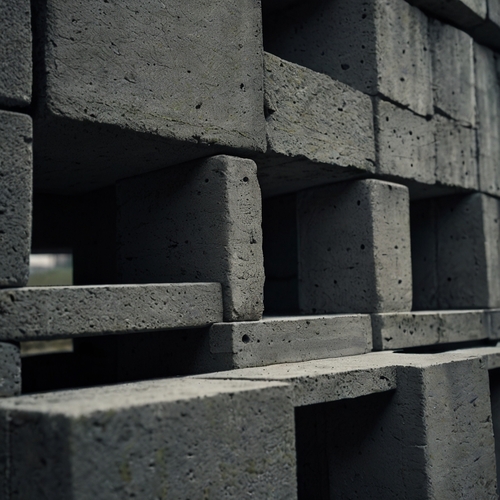Hollow Concrete Blocks Market and The Advantages
To construct the most resilient block buildings, it is essential to use the hollow concrete blocks market. These strong and adaptable building materials are applicable in both commercial and residential projects. It can also be enhanced with cement and steel rebars for superior durability.
The hollow concrete blocks market serves as a construction material for buildings and walls. It is created by molding concrete into specific shapes and then subsequently curing them in a kiln. These are stacked similar bricks. Mortar is then applied to seal the joints. These blocks are popular in both residential and commercial construction due to their strength. It is also generally lower cost in comparison to bricks.
These are available alongside traditional solid blocks. These cuboidal blocks usually have a sturdy outer layer with two or more sizable openings that go all the way through.
The Benefits
The hollow concrete blocks market size is expanding as it is significantly beneficial especially for the construction sector.
1. Excellent insulation
Concrete blocks serve as effective thermal and acoustic insulators. Consequently a house that comes from these blocks will be safe from loud outside noise including traffic. They also help limit noise movement within the building. It is particularly valuable in places such as offices and schools.
Every building benefit from thermal insulation. This basically helps minimize heat loss. It therefore lowers heating costs and positively impacts the environment. The blocks are popular for their excellent thermal and acoustic insulation. When the holes are empty, the air inside helps maintain warmth in winter and coolness in summer.
These openings also aid in insulating the building from loud noises. It therefore minimizes internal noise pollution.
2. Fire resistance
These blocks can withstand high temperatures. It further aids in the prevention of fire spread throughout a structure. They can be valuable to build fire-resistant internal walls as a component of a fire safety strategy.
3. Cost saving
Due to their grater size, these blocks require less labor for installation than bricks. Additionally, hollow concrete blocks require fewer building materials and are lighter than their solid counterparts.
4. Durability
Because concrete blocks have a high compressive strength, they are often quite durable. This basically allows them to effectively support loads.
5. Lightweight
These are significantly lighter than solid blocks because of their hollow spaces. This reduces the energy required for transportation and makes them easier to handle on-site. Their lightweight nature also makes them suitable for areas of a building with weight limitations.
While these are not as strong as solid blocks due to the empty voids, a significant benefit is that builders can fill these holes with cement or rebar. This enhancement significantly increases their strength. This further makes them suitable for robust structures like skyscrapers.
The Difference Between Hollow and Solid Concrete Blocks
The primary distinction between the hollow concrete blocks market and the solid ones lies in the voids within the former. These hollows generally occupy more than twenty-five to fifty percent of the block’s cross-sectional dimensions. These openings make hollow blocks lighter and subsequently create an ideal space for neatly running wires or pipes without visibility.
These are suitable for applications requiring high strength. That is because builders can fill this void with rebar or cement for additional stability. This makes them a viable choice for large structures needing strong walls.
